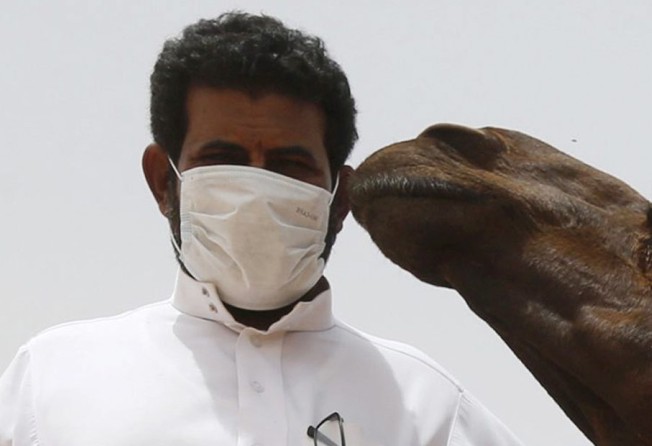US Centres for Disease Control scientists study infectiousness of mild Mers cases

Scientists leading the fight against Middle East respiratory syndrome (Mers) say the next critical front will be understanding how the virus behaves in people with milder infections, who may be spreading the illness without being aware they have it.
Authorities in Saudi Arabia reported five new deaths from the Mers respiratory virus, bringing the death toll in the world’s worst-hit country to 168.
It is becoming increasingly clear that people can be infected with Mers without developing severe respiratory disease, said Dr David Swerdlow, who heads the Mers response team at the US Centres for Disease Control and Prevention (CDC).
"You don't have to be in the intensive care unit with pneumonia to have a case of Mers," Swerdlow said. "We assume they are less infectious [to others], but we don't know."
The CDC has a team in Saudi Arabia studying whether such mild cases are still capable of spreading the virus.
Cases of the disease, which causes coughing, fever and sometimes fatal pneumonia, have nearly tripled in the past month and a half, and the virus is moving out of the Arabian peninsula as infected individuals travel from the region.
Because Mers patients can have "mild and unusual symptoms", the World Health Organisation advises health-care workers to apply standard infection-control precautions for all patients, regardless of their diagnosis, at all times.
Milder symptoms played a role in the second US case of Mers, a man who started having body aches on a journey from Jeddah on Saudi Arabia's Red Sea coast to the United States.
It took the patient more than a week before he sought help in an emergency department in Orlando, in the state of Florida.
Once he arrived, he waited nearly 12 hours in the emergency room before staff recognised a Mers link and placed him in an isolation room.
The patient did not have signs of a respiratory infection, not even a cough.
In its latest tally, Saudi Arabia’s health ministry said the total number of infections in the kingdom from the coronavirus since it first appeared in 2012 now stood at 529 people.
Among the latest fatalities were two men aged 67 and 55 and an 80-year-old woman in Jeddah, the port city where a spate of cases among staff at King Fahd Hospital last month led to the dismissal of its director and the health minister.
In addition, a 71-year-old man and another aged 77 died in Riyadh and Medina respectively, the ministry website reported.
Other nations including Egypt, Jordan, Lebanon, the Netherlands, the United Arab Emirates and the United States have also recorded cases, mostly in people who had been to the desert kingdom.
The World Health Organisation carried out a five-day inspection visit to Saudi Arabia this month and pinpointed breaches in its recommended infection prevention measures as being partly responsible for the spike in hospital infections.
Mers is considered a deadlier but less transmissible cousin of the Sars virus that appeared in Asia in 2003 and infected 8,273 people, nine per cent of whom died.
Like Sars, it appears to cause a lung infection, with patients suffering coughing, breathing difficulties and a temperature. But Mers differs in that it also causes rapid kidney failure.
Reuters, Agence France-Presse
Mers sceptics kiss camels in Saudi Arabia in response to health advice
Scepticism about the Mers virus has taken a strange turn in Saudi Arabia: Saudis have begun kissing camels.
"Do sneeze in my face," a farmer says in a video clip by Gulf News. "They claim camels carry the coronavirus," he continues in the video, which has been watched 11,000 times.
On Twitter, photographs of men kissing and stroking their camels have been accompanied with comments disparaging Mers. It's a strange protest, but there's something behind it. Last week, the Saudi government began a campaign to stop people eating raw camel meat or drinking unpasteurized camel milk. Experts argue Mers, or traces of it, have been found in a large proportion of the camels tested in Saudi Arabia.
Partly due to their fondness for camels, and partly due to a perceived lack of transparency from the Saudi government about Mers, many aren't convinced by the warnings. At a camel market on Sunday only one person was wearing a mask as recommended. Farmers said they had worked with camels for decades with no ill health.
The Washington Post